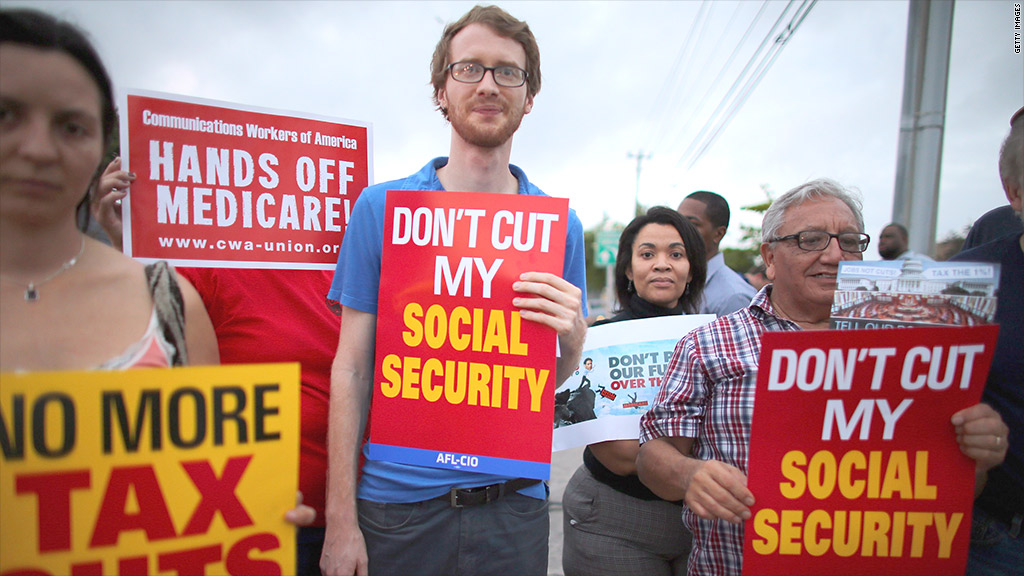
The middle class may have been spared the worst of the tax increases, but they may not be so lucky in the coming entitlement reform battle over deficit reduction.
Entitlements -- including Social Security, Medicare and safety net programs such as Medicaid and food stamps -- don't just benefit the poor and unemployed. More than 90% of the benefits go toward working families, the disabled and the elderly. And more than half of all entitlement spending helps middle class Americans.
In 2010, those age 65 and older collected 53% of the dollars, while the non-elderly disabled received 20%, according to the Center on Budget and Policy Priorities, a left-leaning group. And folks in working families collected 18%.
As for income levels, those in the middle -- earning between $30,000 and $120,000 -- received 58% of all entitlement dollars in 2010.
One reason so many middle income Americans are using the safety net is the recession. Workers nearing retirement age have found themselves without work in recent years and were forced to go on Social Security and Medicare earlier than planned.
In 2007, the middle class received 52% of entitlement benefits, but three years later, that figure rose by 6 percentage points, largely because more older workers were flooding into Social Security and Medicare after losing their jobs.
The share of middle-income American households receiving Social Security benefits jumped to 69%, up from 63%. Likewise, the share of Medicare recipients in that group rose to 64%, up from 58%.
"These are programs that are of great concern to the middle class and greatly affect their well being," said Arloc Sherman, senior researcher at the center. "Social Security has the large effect of keeping people in the middle class."
Another reason why Social Security skews toward middle-income folks is in part because it is a progressive program, so higher income workers receive proportionately less of their incomes in benefits.
Related: Middle class tax breaks on the line
Disability benefits, meanwhile, have become increasingly popular as the nation ages and the economic downturn makes it harder for the disabled to find jobs. Those with health issues who would prefer to keep working, are forced to go on disability instead. Applications for the Social Security disability program reached an historic high in the wake of the Great Recession, exceeding 2.9 million in 2010, according to the Congressional Budget Office. Once people start receiving benefits, few leave the program. The average monthly benefit was $1,068 in 2010.
Working families are the main recipients of the earned income tax credit and the child tax credit, which are designed to encourage employment. About half of food stamp and Medicaid spending also go to individuals in working families, Sherman said. And unemployment benefits are counted as going to working families if the spouse continued to hold down a job or if the recipient worked at least 1,000 hours in the year.
On the other side of the political aisle, the worry is not who is getting the benefits but how many people. The Heritage Foundation just released a study showing that 70 million people are in at least one of 47 government programs.

"Our concern is that entitlements and safety net programs have been growing so rapidly over time, regardless of the economy," said William Beach, who just stepped down as Heritage's director of the Center for Data Analysis. "The numbers are becoming unsustainable or already are."
The largest of the programs, including Social Security, Medicare and Medicaid, are not financially viable over the long run so they need to be addressed to ensure they survive.
"The programs need to be reformed so they'll be there in 10 years," he said.


